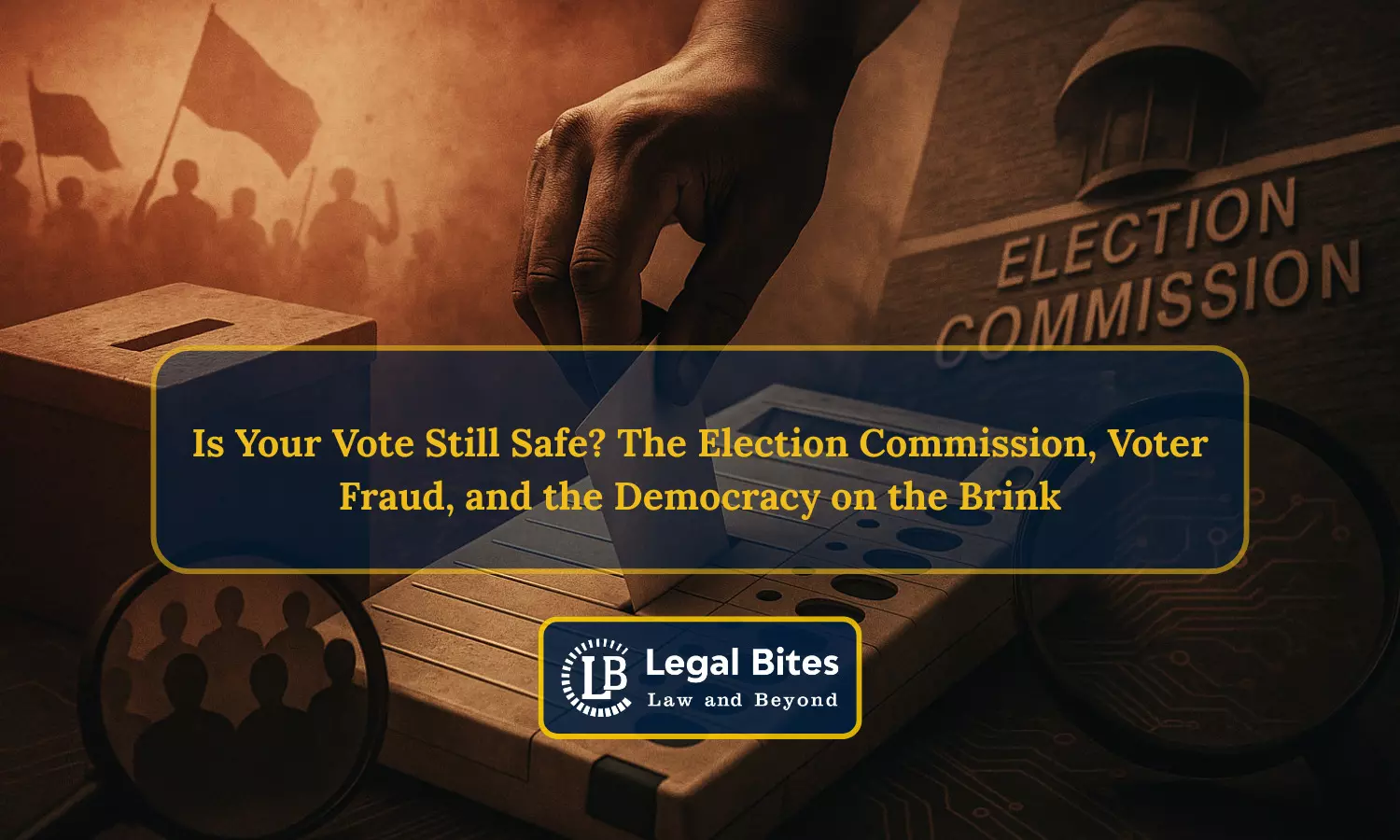Is Your Vote Still Safe? The Election Commission, Voter Fraud, and the Democracy on the Brink


In the world’s largest democracy, the ballot isn’t just a vote—it’s a voice, a right, a power. But what happens when that power is shaken to its core? Today, the very foundation of India’s democratic machinery stands on shaky ground. Explosive claims of voter fraud, rising doubts about the Election Commission’s independence, and the quiet rise of untested e-voting tech have stirred deep unease across the nation. As digital ghosts creep into voter rolls and the lines between oversight and complicity blur, one chilling question echoes louder than ever: Is the Indian voter silently losing voice in the world’s loudest democracy?
The Bombshell That Shook the Nation
On August 7, 2025, Rahul Gandhi, Leader of the Opposition, sent political shockwaves across the country. In a fiery press conferenceGandhi accused the ruling Bharatiya Janata Party (BJP) and the Election Commission of India (ECI) of “orchestrating a systemic voter fraud operation” across multiple states. His evidence? A data-heavy dossier listing inflated and duplicate voter entries, constituency-level discrepancies, and suspicious voter deletions.
Among the most startling revelations was the case of the Mahadevapura Constituency in Karnatakawhere Gandhi claimed that over 100,250 fake voter entries were created ahead of the 2024 Lok Sabha elections. The implication was clear: the BJP was shielding itself from anti-incumbency through digital manipulation, and the EC, knowingly or unknowingly, had become a party to it.
At a press conference, Rahul Gandhi presented findings from a six-month Congress investigationbased on a 7-foot-long printed voters’ list from the Election Commission. He called Mahadevapura a “bullet example” of “choreographed elections” and “vote-theft,” alleging similar manipulation across multiple constituencies. Accusing the Election Commission of colluding with the ruling BJP, he challenged the EC to release the electronic voters’ list for public scrutiny to disprove his claims.
He detailed that 11,965 were duplicate voters, 40,009 had fake or invalid addresses, 10,452 were listed under single addresses, including 80 voters registered to one room, 4,132 had invalid photos, and 33,692 misused Form 6, meant for first-time voters.
The E-SECBHR appdeveloped to assist pregnant women, the elderly, and disabled voters, promised efficiency, accessibility, and modernity. Voters could cast their ballots using facial recognition and OTP-based authentication.
However, civil rights activists and cybersecurity experts quickly flagged multiple vulnerabilities:
- Two voters could use the same mobile number—raising questions on duplication.
- The app’s facial recognition failed frequentlyforcing polling officers to override identity verification.
- The lack of blockchain-based auditing or third-party oversight allowed scope for silent manipulation.
The result? While voter turnout increased among registered users of the app, trust in the sanctity of these votes took a significant hit.
The stakes have never been higher.
Democracy, it is often said, dies not with a bang, but with a whisper. If the voter’s voice is diluted—through fraud, exclusion, or indifference—then the entire machinery of governance becomes illegitimate.
The people of India deserve not just elections, but elections that are truly free, fair, and fearless.
